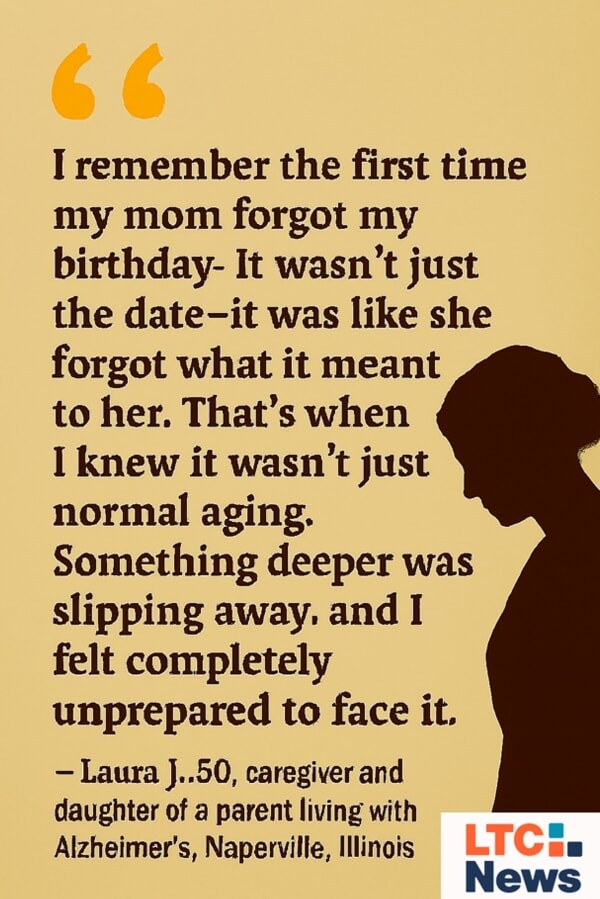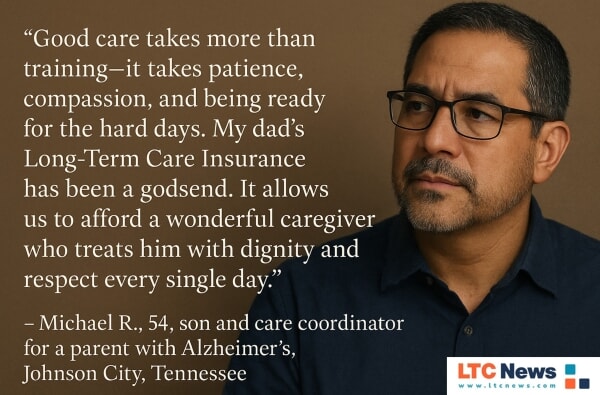Understanding Dementia Care: How Alzheimer’s Progresses and How Families Can Help

You probably knew something was off long before anyone gave it a name. The forgotten conversations. The missed appointments. That look in your loved one’s eyes—like they knew you, but couldn’t place you. If you’re here, you’re likely trying to make sense of Alzheimer’s.
Maybe it’s your parent, spouse, or sibling. Or maybe you're just preparing for what could come.

The truth is, Alzheimer’s doesn’t just affect memory. It slowly steals identity, independence, and connection. But with the right knowledge and care, you can ease the journey for them and for you.
What is Alzheimer’s—and How Does it Progress?
Alzheimer’s is a progressive brain disease that destroys memory, thinking skills, and, eventually, the ability to carry out daily tasks. It’s the most common cause of dementia, accounting for 60% to 80% of all cases, according to the Alzheimer’s Association.
The disease typically unfolds in three main stages:
Early Stage (Mild)
In the early stage, most people can still function independently. They might:
- Struggle to find the right word or remember names
- Misplace items more often
- Experience mild memory lapses or get lost in familiar places
- Feel anxious, frustrated, or depressed
You may notice them withdrawing socially or avoiding situations that expose their struggles.
One of the first signs is subtle personality change. They may seem less engaged, more irritable, or unusually quiet, — Dr. Heather Snyder, vice president of medical and scientific relations at the Alzheimer’s Association.
Middle Stage (Moderate)
This stage is often the longest and most emotionally draining for both the care recipient and you. Symptoms become more obvious:
- Greater confusion and memory loss
- Increased need for help with personal care
- Sleep disturbances and wandering
- Repeating stories or questions
- Difficulty recognizing close family or friends
Behavioral changes—like aggression, paranoia, or agitation—can emerge. This is when many caregivers seek professional help or consider in-home support or assisted living.
Caregivers, even with the best intentions, can be a trigger to a behavioral change. For example, reasoning with the person who has a declining ability to reason often results in little success in helping the person understand and can result in a change in behavior. Short of an immediate safety issue (the person is doing or about to do something that is dangerous), in most situations, backing off, waiting a few minutes, and trying again is more likely to be successful and contribute to fewer behavioral changes. — Brian Chicoine, M.D., Advocate Medical Group.
Late Stage (Severe)
In late-stage Alzheimer’s, round-the-clock care is often necessary. Your loved one may:
- Lose the ability to walk, talk, or swallow
- Be unable to recognize loved ones—or themselves in a mirror
- Become completely dependent for daily activities
As painful as this is, the goal shifts to comfort, dignity, and connection—often through touch, music, or simply presence.
How You Can Support a Loved One with Alzheimer’s
Supporting someone with Alzheimer’s requires patience, compassion, and preparation.

Share your thoughts and experiences about aging, caregiving, health, and long-term care with LTC News —Contact LTC News.
Here’s how to offer meaningful help at every stage:
Learn About the Disease
Knowledge reduces fear and helps you respond with understanding rather than frustration. Reliable resources include:
- Alzheimer’s Association/Care Support
- National Institute on Aging/Alzheimer's/Dementia
- LTC News Family Caregiving Resource Center
Communicate with Care
As verbal skills fade, adjust your approach:
- Use short, simple sentences
- Maintain eye contact and speak calmly
- Avoid correcting or arguing
- Use visual cues and gentle touch
Connection is always possible—even if it’s no longer through words. —Teepa Snow, dementia care educator and founder of Positive Approach to Care.
Why the Right Caregiver Makes All the Difference
Alzheimer’s care isn’t just about managing symptoms—it’s about preserving dignity and connection. The right caregiver brings more than medical skills. They offer patience, structure, and emotional support.
A trained dementia caregiver can:
- Reduce confusion with consistent routines
- Handle behavioral issues calmly and safely
- Help with bathing, toileting, meals, and medication
- Engage your loved one in meaningful activities
When you have a caregiver who truly understands dementia, you reduce stress for everyone involved. You’re not just providing care—you’re preserving quality of life. — Dr. Angela Lunde, cognitive health specialist at Mayo Clinic.
You can search for licensed in-home caregivers or facilities using the LTC News Caregiver Directory.
When to Consider Memory Care
There’s no single moment when it’s time to move from home care to memory care. But there are signs:
- They wander frequently, even with safeguards in place
- Their needs exceed what you or in-home caregivers can manage safely
- You or other caregivers are experiencing physical or emotional burnout
- They are no longer safe to be left alone for any period of time
- Their quality of life would improve in a structured, supervised setting
Memory care communities provide a secure environment with 24-hour support, specialized programs, and staff trained in managing dementia-related behaviors.
Tip: Use the LTC News Cost of Care Calculator to compare local memory care and in-home care costs when shopping for long-term care services.
How Long-Term Care is Paid For
Long-term care—whether at home, in assisted living, or in memory care—isn’t covered by health insurance or Medicare beyond short-term skilled care.
Common ways families pay include:
- Long-Term Care Insurance: Offers tax-free benefits that can cover home care, adult day care, memory care, and nursing home costs.
- Medicaid: Covers long-term care only after someone has exhausted most of their assets.
- Personal savings: The least desirable option, often depleting retirement funds or forcing adult children to contribute.
- Veterans benefits: May help if your loved one is eligible for VA Aid and Attendance.
Experts say that some people wait too long to use their Long-Term Care Insurance benefits. If your loved one has a policy, don’t delay filing a claim. Benefits are meant to ease the burden early, not just at the end.
Activating benefits early often helps you secure professional help before caregiver burnout becomes a crisis. Most policies include a care coordination benefit to help guide your choices.
If your loved one has an LTC Insurance policy, LTC News can help. LTC News partners with Amada Senior Care to help you process any LTC Insurance claim at no cost or obligation- Filing a Long-Term Care Insurance Claim.
Don’t Forget Yourself
There are now more than 63 million unpaid family caregivers in the U.S., according to an AARP study. The physical and emotional toll is enormous—and many caregivers burn out or develop health issues themselves.
Caregivers must remember they’re not invincible. Respite care, support groups, and counseling aren’t luxuries—they’re lifelines. ——Dr. Eric Widera, professor of geriatrics at UCSF.
Consider:
- Joining a local Alzheimer’s support group
- Speaking with a therapist or spiritual advisor
- Asking family to share the care load
- Looking into paid caregiving help—even part-time
What’s Next? Focus on Connection, Not Perfection
Alzheimer’s doesn’t take everything. Moments of laughter, eye contact, and even joy still happen. Music, pets, old photos, and familiar routines can spark something deep within your loved one, even in late stages.
You don’t have to be perfect. You just have to be present.
People living with dementia are still here. They still feel love. They still need purpose. They still matter. — Dr. Jason Karlawish, co-director of the Penn Memory Center.
Final Thoughts
Alzheimer’s is a long road, but you don’t have to walk it alone. Learn what’s coming. Get the right help early. Take care of yourself, too. Plan for your future aging and health needs by adding Long-Term Care Insurance to your retirement plan. Don't wait, since you usually need fairly good health to qualify for a policy. Always use a qualified LTC Insurance specialist to shop and provide accurate quotes.
And remember—your presence and love are more powerful than any cure we’ve yet to find.


